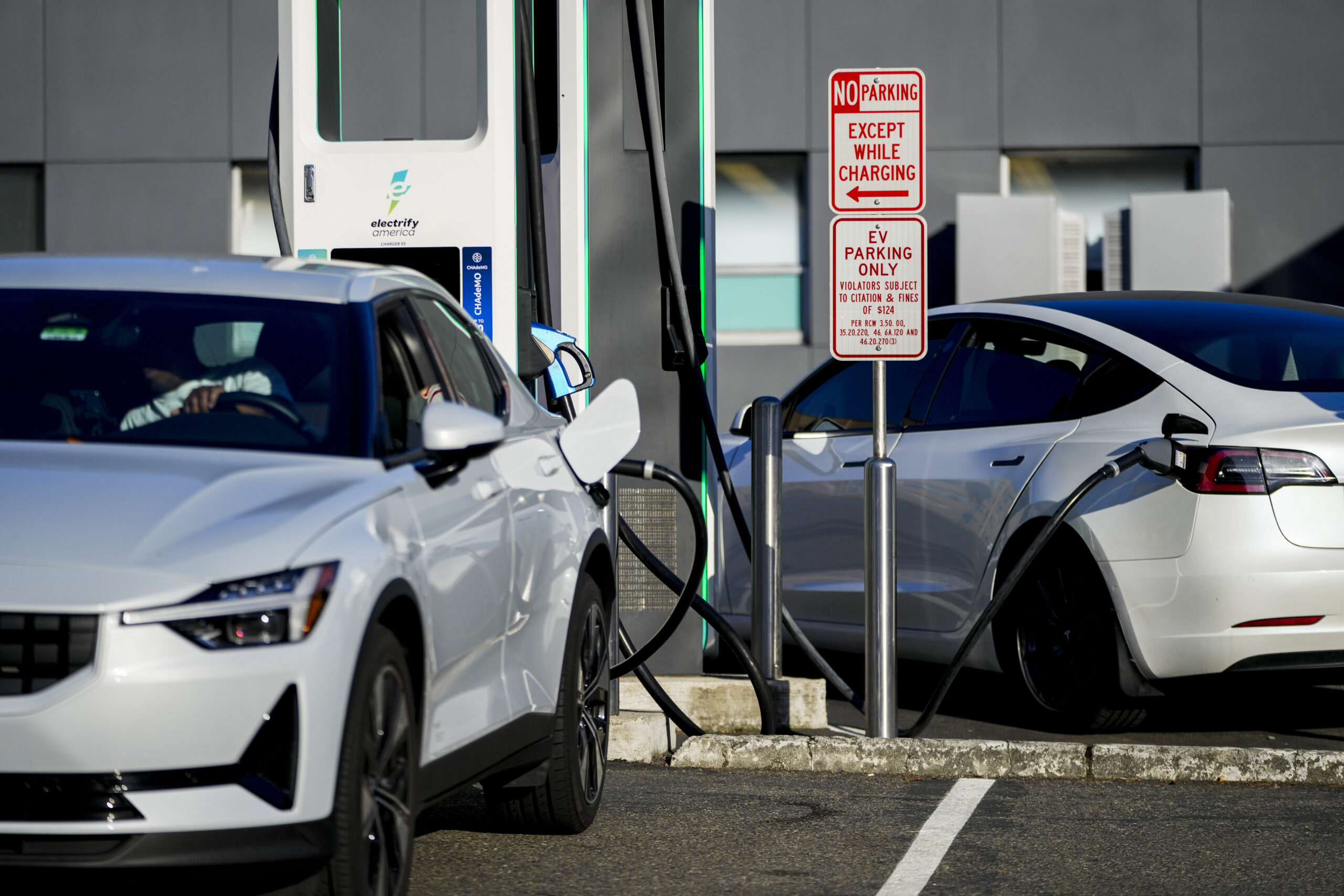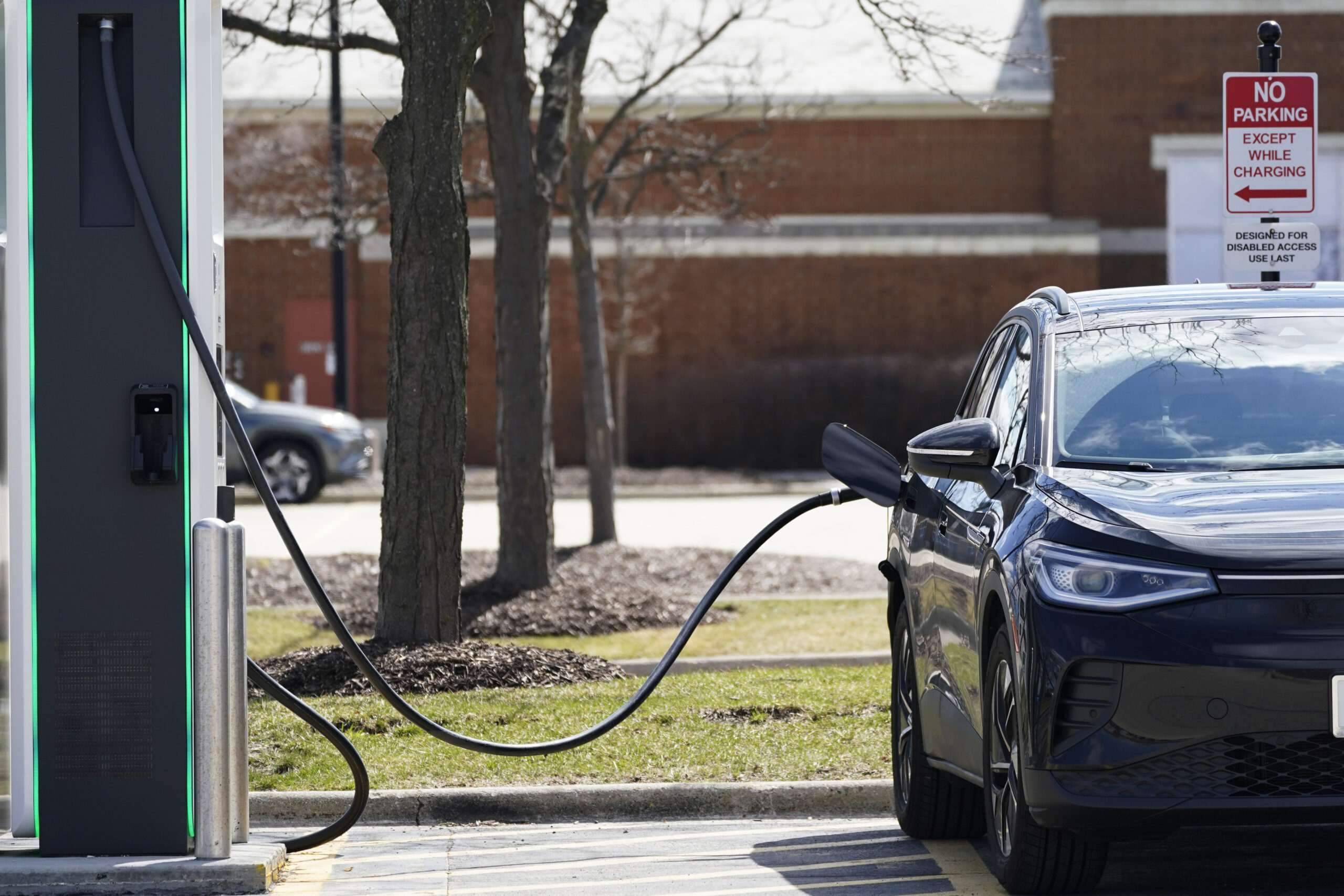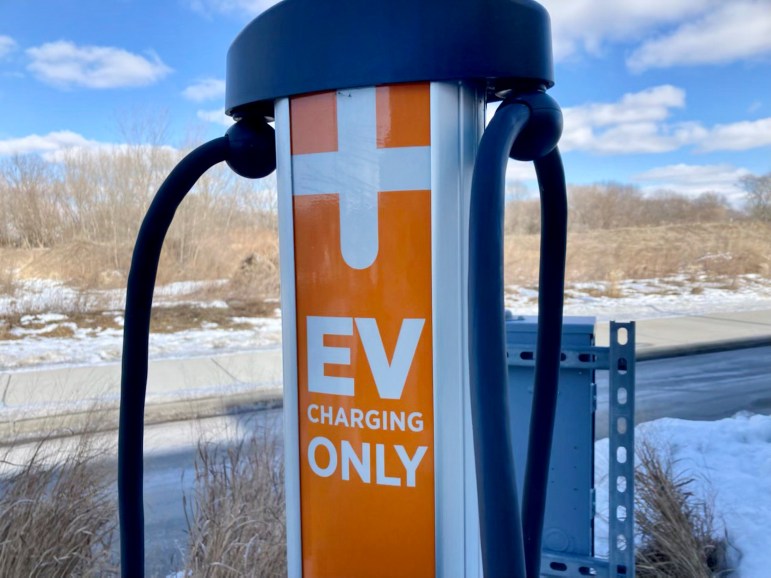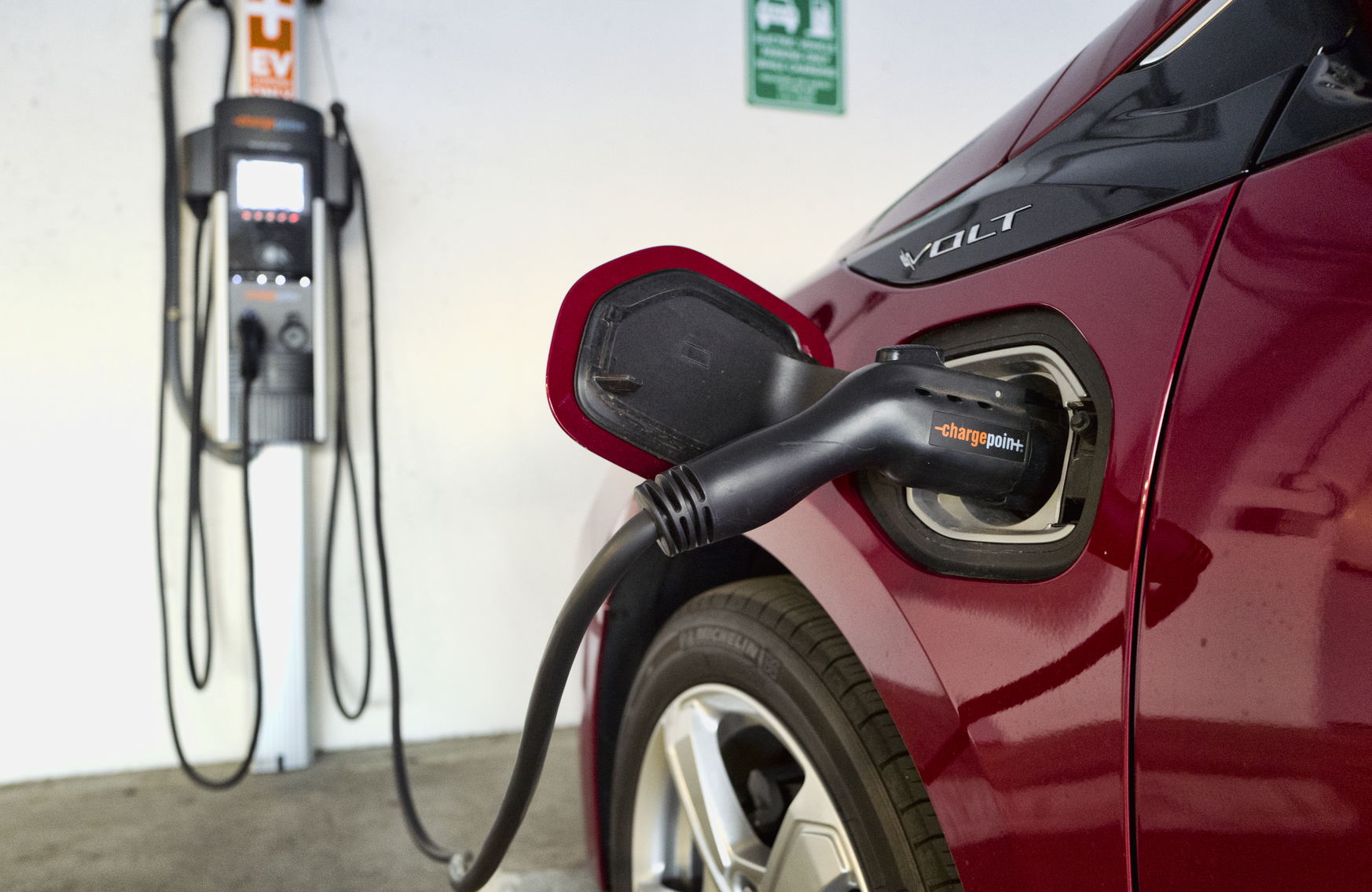The Trump administration is halting a $5 billion program that aims to fast-track installation of electric vehicle chargers along highways nationwide, blocking access to tens of millions of dollars set aside for Wisconsin.
The U.S. Department of Transportation released a memo Thursday saying it was immediately suspending approval of state plans for deploying chargers. Transportation officials say no new funds will be awarded until the Federal Highway Administration updates guidance for the program to align with current policies.
Wisconsin was set to receive a total of more than $78 million in federal funding for charging stations. The state stands to lose out on roughly $55 million that Wisconsin has yet to receive.
In a statement, Gov. Tony Evers called the move shortsighted and reckless.
Stay informed on the latest news
Sign up for WPR’s email newsletter.
“Now, just a week after I joined Kwik Trip to launch Wisconsin’s first federally funded EV charging stations, Sean Duffy and the Trump Administration want to yank tens of millions of investments to help build infrastructure for the 21st Century across Wisconsin,” Evers said.
The first federally funded charging stations in the state came online at Kwik Trip locations in Ashland, Menomonie and Chippewa Falls in December. The projects were among 53 charging stations that businesses were set to install at sites around Wisconsin. However, Evers’ office said the Trump administration’s decision also jeopardizes about $7.3 million that were already approved for 15 of those projects.

Sam Dunaiski, executive director of RENEW Wisconsin, said the federal government has executed contracts with businesses or developers on 33 projects. Dunaiski indicated the Trump administration’s decision could face a legal challenge.
“The potential for these funds to be clawed back would have a particularly negative impact on Wisconsin compared to some other states,” Dunaiski said.
Wisconsin is trying to catch up to other states that are further along in building out their electric vehicle infrastructure.
Last year, Wisconsin changed state law to allow private businesses to own and operate charging stations without being regulated as utilities. Previously, only utilities could sell electricity by the amount of power used, also known as charging by the kilowatt-hour. The state had to change the law to allow retail sale of electricity by charging station operators in order to access the more than $78 million available to Wisconsin.
The state had been preparing to build a total of about 65 fast-charging stations. Federal funds were slated to pay up to 80 percent of the cost to install them. The state’s plan called for placing them every 50 miles along designated highways, including at restaurants, big box stores and convenience stations. That includes major interstates like I-94 and I-39. The state’s plan also included routes like U.S. Highway 2 and Highway 51 in northern Wisconsin, which is lacking EV charging stations.
“We need this infrastructure and this EV charging network to ease range anxiety and support businesses that are doing their part to make emissions-free travel options available in this state to consumers,” Dunaiski said.
The transportation sector accounts for the largest share of heat-trapping greenhouse gas emissions that contribute to climate change. Because they don’t burn gasoline, EVs are a lower-emissions option compared to an internal combustion engine, contributing less to climate change.
Wisconsin Public Radio, © Copyright 2025, Board of Regents of the University of Wisconsin System and Wisconsin Educational Communications Board.



